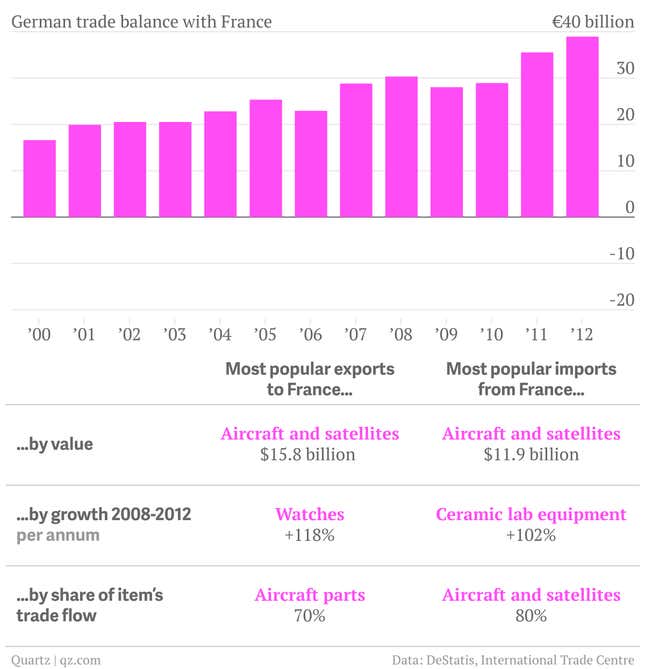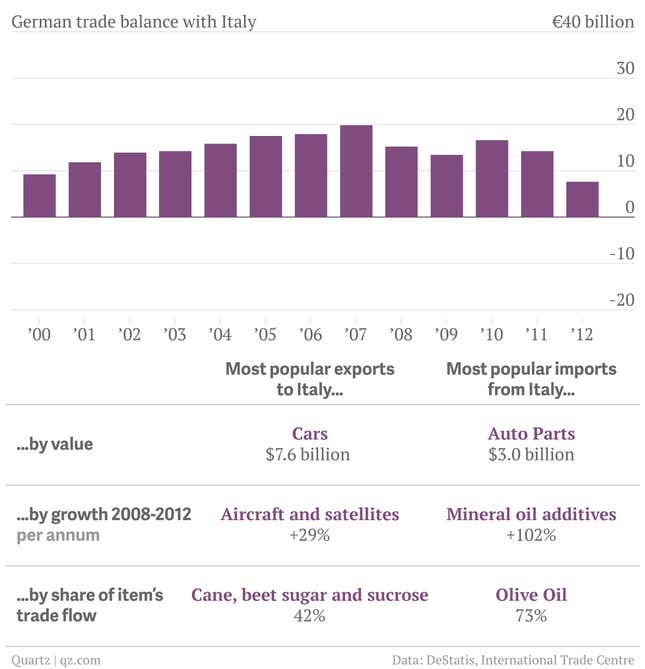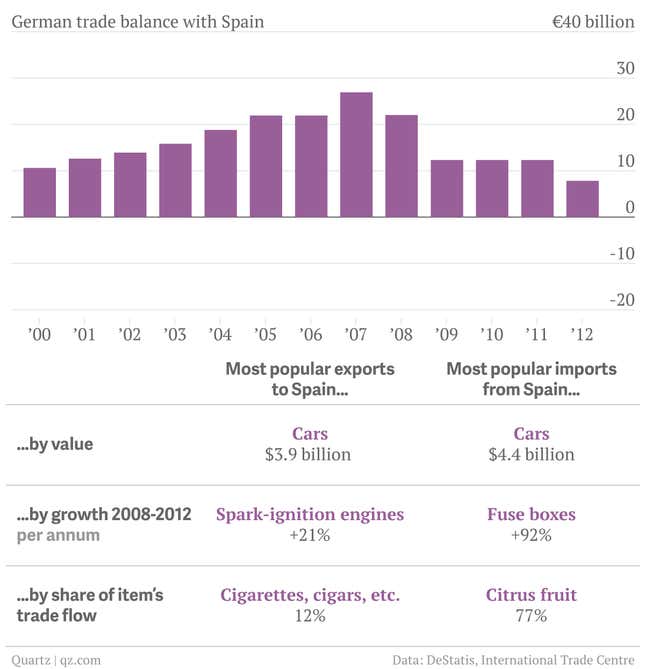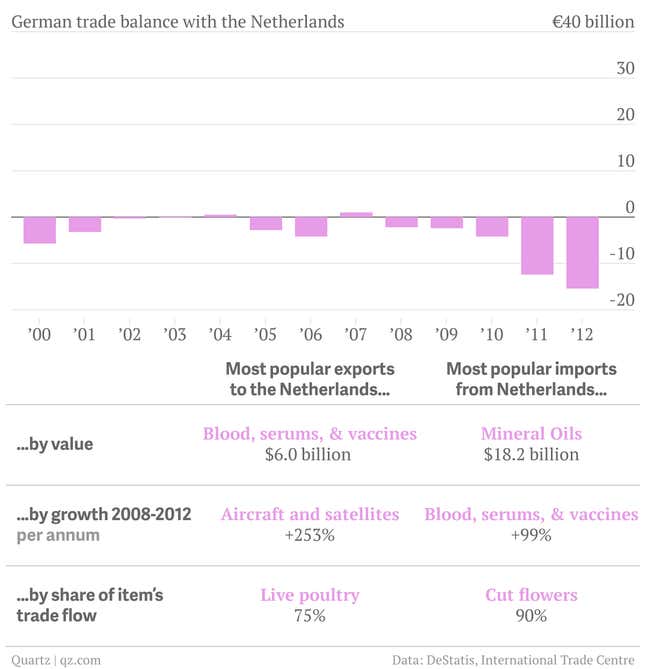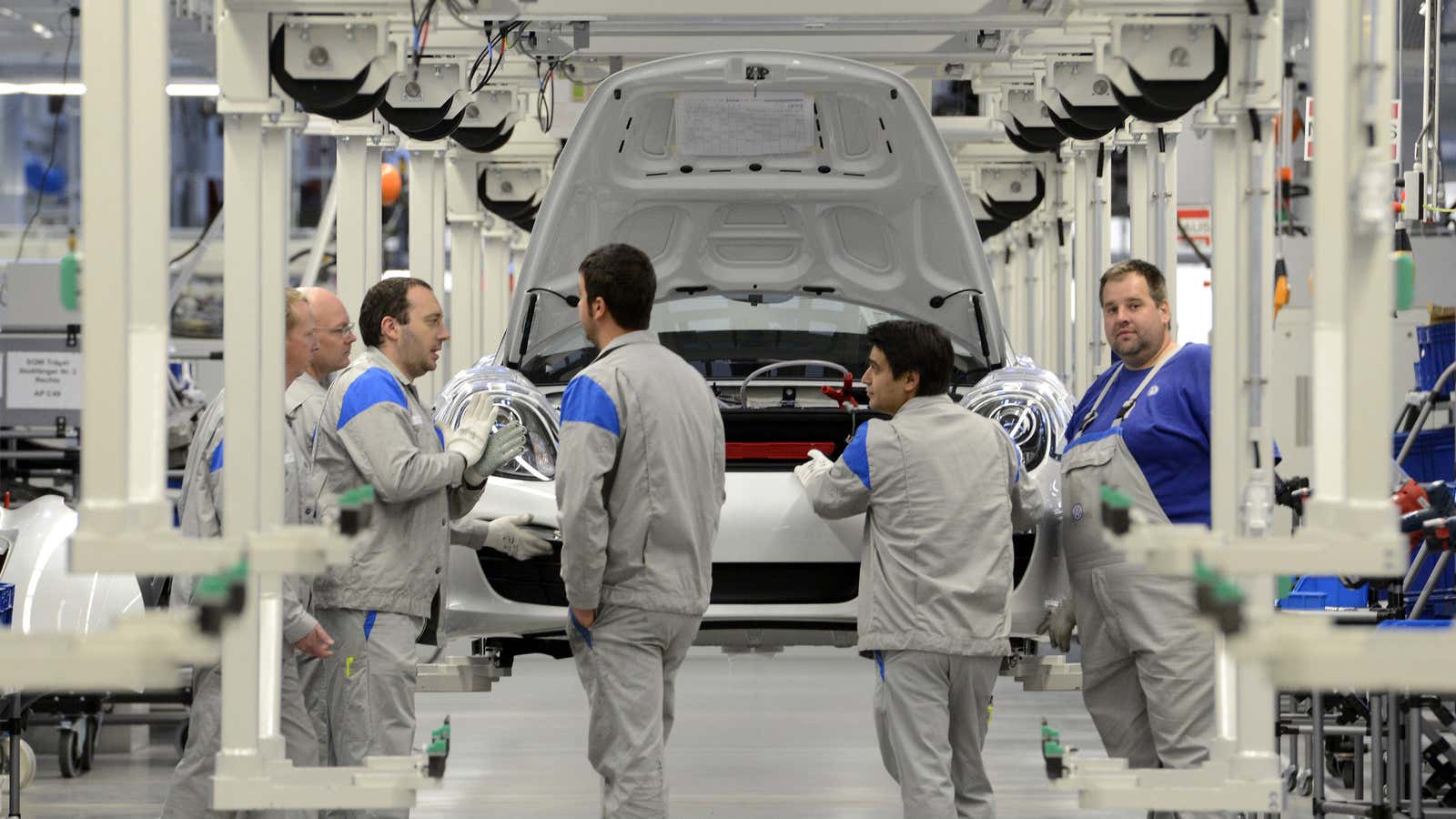Germany is justifiably proud of its many world-class products, and bristles when others criticize its export-driven economic model—as US Treasury secretary Jack Lew did yesterday. Critics like Lew contend that the country needs to focus its attention on boosting domestic spending rather than fine-tuning its export machine, in order to benefit its trading partners, particularly less well-off members of the euro zone.
On the very day of Lew’s rebuke, new data on German foreign trade provided grist for his critique: November exports rose for the fourth consecutive month and imports unexpectedly plunged. But dig into the details and the picture is much more complicated. In the first 11 months of 2013, Germany’s trade surplus with the rest of the euro zone was only €1 billion ($1.4 billion); its surplus with non-EU counties was more than €140 billion over the same period.
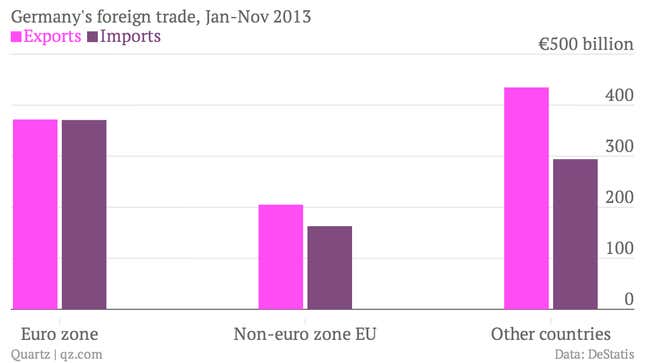
If German exporters can generate profits by selling goods far from Europe, they may have less incentive to compete with local European suppliers on their home turf. They also gain the financial firepower to spend more at home in Germany, including on imports produced by its hard-up euro zone neighbors.
Diving into country-by-country trade details complicates the picture even more. It also becomes clear why you hear little criticism of German exports in Amsterdam, while Paris seems positively obsessed. Germany ran a trade deficit of more than €15 billion with the Netherlands in the fist 10 months of 2013 (the latest data available), while Germany’s trade surplus with France was worth more than €30 billion.
The key goods that Germany trades with other euro zone members are varied, as the chart below shows. It is easy to say that Germany should export less and invest more, but on the ground the policies dealing with exports of aircraft to France will have little impact on vaccines sold to the Netherlands, just as efforts to promote more imports of olive oil from Italy are quite distinct from the trade in cars made in Spain. These and countless other examples make sweeping calls for Germany to “rebalance” its economy more difficult to achieve in practice than on paper.
